Each rainy season, the number of people with cholera infections rise rapidly. Though it varies every year and there are 2 distinct heavy rainfall seasons per year, the rainy season is generally from late April until November. The new cholera treatment center is able to care for 50 inpatients and we often average 40-60 patients during the months of May-September. This is a huge blessing to thousands as some other areas in Haiti have no where close to go if they have cholera.
We live in the mountain chain called Matheux and this is also the name of our arrondissement or district. The mountain range is 47 miles long and 12 miles wide. In this district, there are 2 communes or townships – Arcahaie and Cabaret. The total population of our district is 228,953 people. There are 2 places in this whole area that can treat cholera – us and one other. Last year, there were three others, but they have closed down.
This is a bit overwhelming.
We can’t possibly cover the whole area with prevention and first contact care, but we are working with the Red Cross (Haitian, French, German) and MSPP (Haitian health department) to cover as many areas as we can. Cazale falls under the Cabaret township and is one of 4 sections within this township. Our section has a larger land surface than all the other 3 combined. In our section, RHFH is committing to help six community health care workers this year.
We trained 12 workers in 2011 right after the outbreak. The government hasn’t been able to pay them since 2011, but some have still worked on a volunteer basis to give care to cholera patients and others with diarrhea illness. I know that they have saved many lives and educated thousands of people. When the patient is very sick and needs IV fluids, they transfer the patients to us at the CTC. They also disinfect houses and treat the bodies of those that have died of cholera.
We are wanting to support them more this year and would like your help. They have had to care for cholera patients at their homes, on their porch, or in their front yard. We are also hoping to build an open-side shelter close to their homes so that the ill patients be treated there. These oral rehydration stations are strategically scattered over our section so that they will be able to serve the most rural areas and reach a large population. It is our hope that they will provide quality first aid care and prevent deaths. These stations will contain the bacteria better, give a specific and larger area to receive patients, and provide a place for someone to sleep if needed. It will be a simple four pole structure with a tin roof. We will also have a bench made for each station. We will provide a cot, stretcher, and other materials. Each station will cost $325 to build and we are asking that you consider helping with this need. We would like to have six stations ready to go when the rainy season starts.
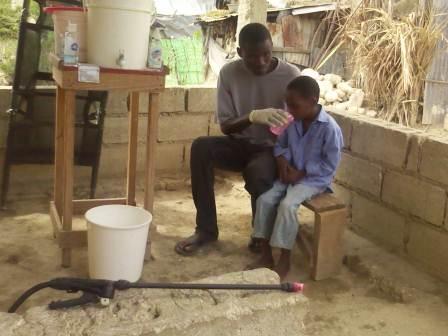
The cholera health care workers are so excited about this possibility that they have started clearing the land. They are hopeful and have faith that you will help them so that they can educate and care for more people with cholera.
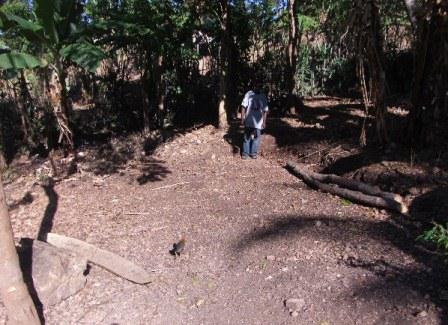
Please think about giving to this important need. You can use the paypal button on the right or send a check (write “cholera station” in the memo) to 15215 Endeavor Drive, Noblesville, IN 46060. In the future, we are hoping to provide each of them with a handwashing station and and a solar lamp. Any extra funds will go to these needs. Thank you for your prayerful consideration.


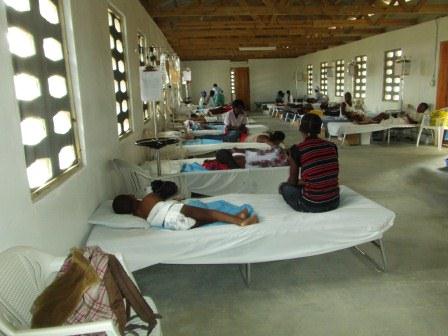
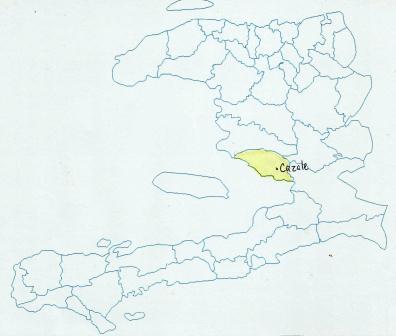
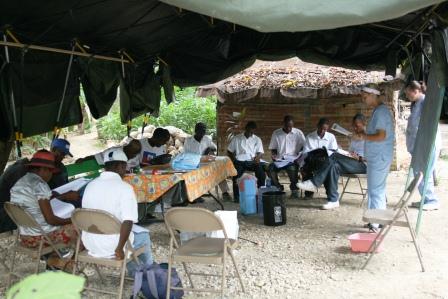
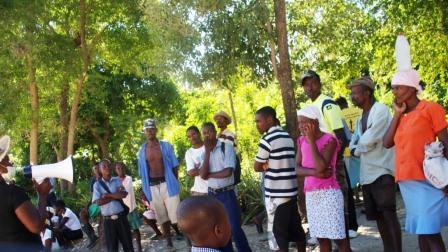
Comments(2)
Bekki says
March 24, 2014 at 6:25 pmThis is a fantastic idea! I love that RHFH works with Haitian nationals to help the Haitian people. I’m sending a donation!
Lori says
March 24, 2014 at 7:21 pmThanks Bekki! There are now 2 cholera stations donated!! 🙂